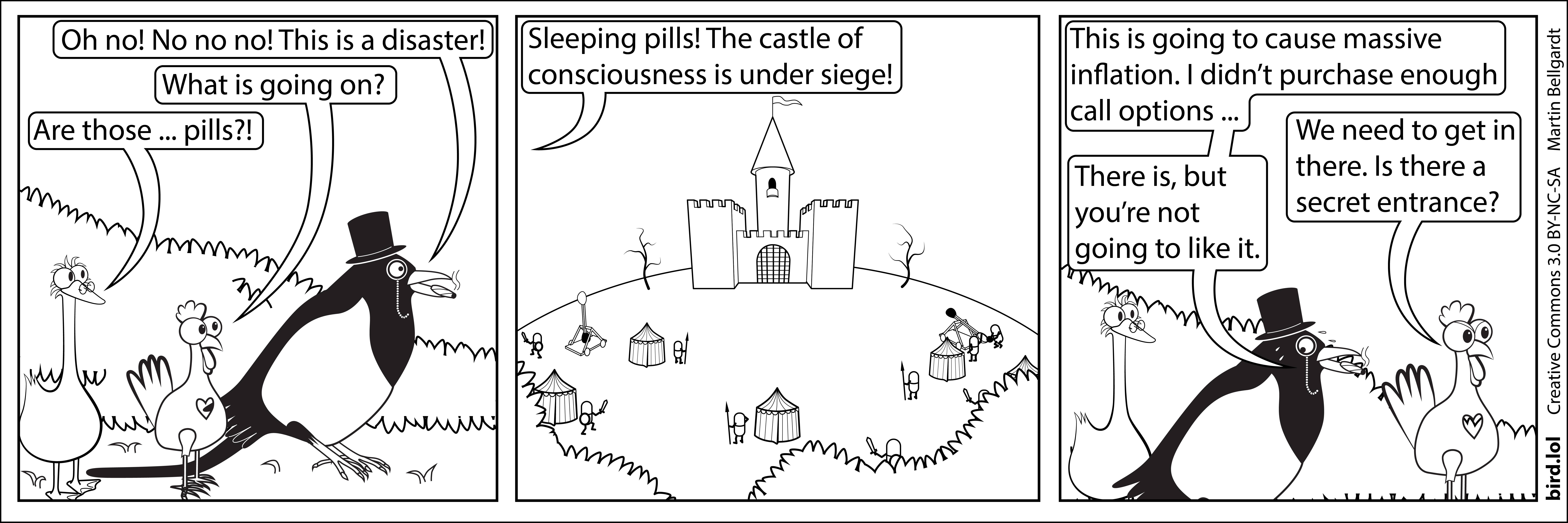Considering how it feels to be conscious, it's difficult to regard consciousness as something mundane. Throughout all of human history people have wondered what consciousness even is, where it comes from and why it exists. It's certainly the basis for many speculations about gods, spirits, souls, the afterlife and reality itself. I have shared some of my thoughts in this blog as well. Today I want to share a thought I recently had that may be devastating to this whole mystery, regardless of what your definition of consciousness might be:
We might not need consciousness to explain the behavior of humans. We know a lot about the brain these days. It's always been a little hobby of mine to study the brain, neurons and computational models of them to get a grasp on how thinking works. And while there's certainly a lot I don't know, I've come to a point where it just stops to feel mysterious. Sure, there's lots of questions that even science cannot explain yet. But I've come to realize that the reason for that might just bee the sheer complexity of brain. I don't think there necessarily needs to be a core principle we haven't discovered yet. I feel like I see a way how the principles we know *could* come together to explain human behavior. Unfortunately, this is a premise you just have to accept, since it's my subjective experience based on everything I've learned.
Now, this point of view I acquired has some interesting implications. The most important one is that there is no reason to believe that consciousness is anything special. Again, I'm not saying definitely isn't based on yet unknown physical principles, I'm just saying that it is sound to believe that it isn't according to Occam's Razor. The simplest explanation might just be that consciousness represents the concept that a system capable of defining concept defines for itself. It differs from the concept of "self" since that usually includes one's physical body, thoughts and identity. Consciousness would thus only be the logical system, independent of any physical reality. In the language of machine learning, it would be the algorithm, independent of a specific model.
If this were true (and again, I think it's the most likely explanation) this meant that consciousness did not really exist at all. It might just be a concept discovered by humans, probably some animals and maybe even machines. But discovering this concept would not make these systems special in any way as it would just happen with sufficiently advanced learning capabilities. It's a necessary concept because the best explanation for reality is a universe that exists everywhere, whereas the information a learning system has about it is very much localized. A statistical bias that requires the concept of consciousness to correct for it.
Unfortunately, this explanation which requires no god, no soul, no unknown physical principals is very difficult to accept. We're humans after all and our brains evolved to keep us alive. This makes us painfully aware of the concept of death and that we're not going to be able to avoid it. If consciousness is nothing special, that means that it, too, will just seize to be at that point. This is not only difficult to imagine, it's also really unsatisfying. Most people prefer to believe, without any supporting evidence, that their consciousness will continue to exist after their death. It's an important tool for them to induce hopefulness.
I've probably expressed before that I'm not too fond of hope as a concept, but I understand that most are not willing to let go like I did. I do wish, though, that those people would just stop looking to science to understand consciousness. Science is already able to explain it.

